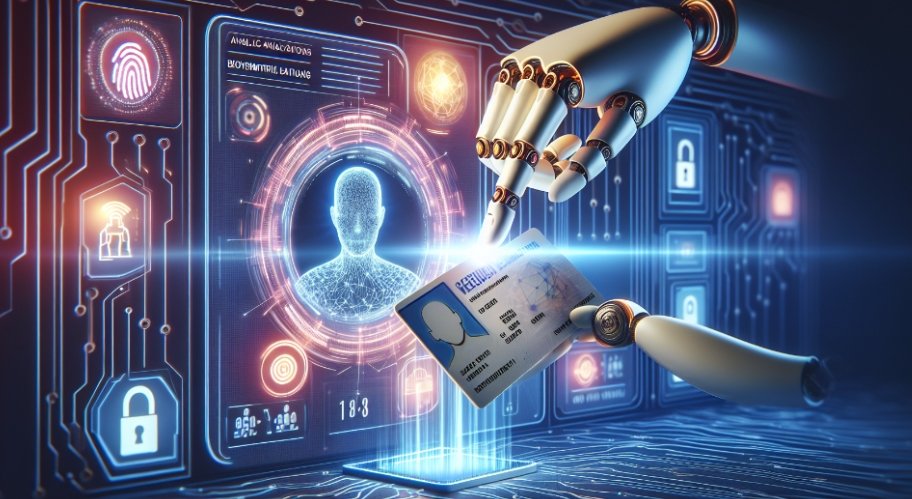Understanding Generative AI and Its Role in Project Management
Generative AI, a subset of artificial intelligence, fundamentally differs from other types of AI due to its ability to create new content and solutions autonomously. Unlike traditional AI, which relies on pre-defined rules and datasets to perform specific tasks, Generative AI leverages advanced machine learning techniques and neural networks to generate novel outputs. These outputs can range from text and images to complex data patterns, making Generative AI a versatile tool across various domains.
At its core, Generative AI utilizes deep learning algorithms that mimic human neural networks. These algorithms are trained on vast amounts of data, enabling the AI to identify patterns and generate content that aligns with the learned data. This process involves a combination of supervised and unsupervised learning, where the AI refines its outputs based on feedback and self-improvement mechanisms.
In the realm of project management, Generative AI offers a plethora of applications and benefits. One of the primary advantages is the automation of routine tasks. By handling repetitive activities such as scheduling, resource allocation, and progress tracking, Generative AI allows project managers to focus on more strategic aspects of their projects. This automation enhances efficiency and reduces the likelihood of human errors.
Generative AI also plays a crucial role in enhancing decision-making processes. The AI can provide project managers with actionable insights and recommendations by analyzing large datasets and identifying trends. This data-driven approach ensures that decisions are based on objective evidence, leading to more informed and effective outcomes. Furthermore, Generative AI can simulate various project scenarios, helping managers anticipate potential challenges and devise proactive strategies.
Another significant benefit of Generative AI in project management is its predictive capabilities. By leveraging historical data and machine learning models, the AI can accurately forecast project timelines, budget requirements, and resource needs. These predictive insights enable project managers to mitigate risks, adjust plans as necessary, and ensure that projects are delivered on time and within budget.
Integrating Generative AI into project management practices revolutionizes how projects are planned, executed, and monitored. By automating routine tasks, enhancing decision-making processes, and predicting project outcomes, Generative AI empowers project managers to achieve greater efficiency, accuracy, and success in their endeavours.
AI Tools Transforming Project Management
The landscape of project management is being revolutionized by advanced AI tools. These tools enhance various facets of project management, from scheduling and resource management to risk analysis and communication. By leveraging AI, project managers can streamline processes, improve accuracy, and boost efficiency.
One of the pivotal AI tools in project management is predictive scheduling software. These tools utilize machine learning algorithms to analyze historical data and predict future project timelines. For instance, tools like Microsoft Project and Smartsheet integrate seamlessly with existing project management software, offering real-time updates and predictive insights that help in better planning and execution.
Resource management is another critical area where AI is making significant strides. Resource Guru and Float employ AI to optimize resource allocation, ensuring that the right resources are assigned to the right tasks at the right time. These tools analyze workload, skill sets, and availability to provide intelligent recommendations, thereby minimizing resource conflicts and enhancing productivity.
Risk analysis is crucial for the successful completion of any project. AI-driven risk management tools like RiskWatch and RiskLens assess potential risks by analyzing vast amounts of data, identifying patterns, and predicting potential issues before they escalate. These tools offer actionable insights and mitigation strategies, helping project managers to proactively address risks and avoid costly delays.
Effective communication is the backbone of successful project management. AI-powered communication tools like Slack and Trello incorporate natural language processing (NLP) and sentiment analysis to facilitate clear and efficient communication among team members. These tools can prioritize messages, automate responses, and even detect the sentiment behind communications, fostering a more collaborative and positive work environment.
Looking ahead, the future of AI tools in project management appears promising. Emerging trends include the development of more sophisticated algorithms, enhanced integration capabilities, and using AI for strategic decision-making. As AI technology evolves, it is set to further transform project management, making it more efficient, accurate, and adaptive to the ever-changing business landscape.
Implementing AI in Your Project Management Workflow
Integrating AI into your project management workflow can significantly enhance efficiency and productivity. The first step towards this transformation is to assess your current project management processes. Conduct a comprehensive review to understand the strengths and weaknesses of your existing workflows. This analysis will help identify areas where AI can add the most value, such as automating routine tasks, improving communication, or enhancing data analysis capabilities.
Once the assessment is complete, the next step is identifying specific tasks and processes that can benefit from AI integration. For example, AI can be used for predictive analytics to forecast project timelines, resource allocation, and risk management. It can also automate repetitive tasks like scheduling meetings, sending reminders, and updating project statuses. You can effectively target improvements that will significantly impact your project by pinpointing these areas.
Selecting the right AI tools is crucial for successful implementation. Various AI-powered project management tools are available, each offering different features and capabilities. Choose tools that align with your project’s needs and seamlessly integrate with your existing systems. It is essential to consider the scalability of these tools to ensure they can grow with your project demands.
Training your team is another critical aspect of integrating AI into project management. Ensure team members are well-versed in the new tools and understand how to leverage AI to enhance their workflows. Providing comprehensive training sessions and continuous support will help ease the transition and overcome resistance to change.
Implementing AI can come with its own set of challenges and pitfalls. Common issues include data privacy concerns, integration difficulties, and the initial learning curve associated with new technology. To mitigate these challenges, start with a pilot program to test the AI tools in a controlled environment. This approach lets you identify potential issues early and make necessary adjustments before a full-scale rollout.
By following these steps and being mindful of potential obstacles, project managers can ensure a smooth transition to AI-enhanced workflows. The result is a more efficient, data-driven approach to project management that maximizes benefits and drives project success.
AI Certification and Training for Project Managers
As generative AI becomes increasingly integral to project management, acquiring the proper certifications and training is crucial for project managers. Various certification programs and courses are available to equip project managers with the necessary skills to harness AI effectively. These programs cover essential topics such as data literacy, AI algorithms, and ethical considerations.
Leading organizations and educational institutions offer comprehensive AI certification programs. For instance, the Project Management Institute (PMI) provides the “PMI “I in Project Management” cer”ification, which focuses on the application of AI in project management contexts. This program typically spans three to six months and includes modules on AI fundamentals, data analysis, and practical AI applications in project management.
Another notable certification is the “Cert” of Artificial Intelligence Practitioner (CAIP)” by “the Artificial Intelligence Board of America (ARTiBA). This certification delves into AI concepts, machine learning, and the ethical use of AI, offering project managers a robust understanding of AI technologies. The course duration varies but generally requires around 100 study hours, including hands-on projects and case studies.
For those seeking shorter courses, platforms like Coursera and edX offer specialized AI courses tailored for project management. These courses, often four to eight weeks, cover critical areas such as predictive analytics, AI-driven decision-making, and integrating AI tools in project workflows. Participants gain practical insights and actionable knowledge to enhance their project management capabilities.
In addition to formal certifications, project managers should continuously update their skills and knowledge to stay abreast of the latest AI developments. Subscribing to relevant journals, attending industry conferences, and participating in online forums are effective ways to keep pace with emerging trends. Engaging in lifelong learning ensures that project managers remain proficient in leveraging AI to drive project success.
Ultimately, acquiring AI certification and training empowers project managers to navigate the complexities of AI technologies, making them more adept at optimizing project outcomes and delivering strategic value to their organizations.
Software Development as a Service: Transforming Business Solutions
Top SEO Tips for Beginners and Businesses
“ Which of the Following is True of Protecting Classified Data”










